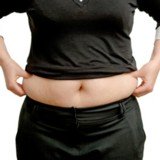Egg Nutrition Facts
Egg Nutrition Facts, Cholesterol and Protein
 Eggs are one of the most common foods that you will find on a breakfast table. Not only can you have eggs for breakfast but also throughout the whole day. As I am sure you have already heard several times, breakfast is the most important meal of the day. It's vital that you eat a healthy, well balanced, nutritious and wholesome meal in the morning before you start your day. And what better way than to add eggs to this first meal of the day? Including eggs in your diet is a good way to start off on your eating healthy journey.
Eggs are one of the most common foods that you will find on a breakfast table. Not only can you have eggs for breakfast but also throughout the whole day. As I am sure you have already heard several times, breakfast is the most important meal of the day. It's vital that you eat a healthy, well balanced, nutritious and wholesome meal in the morning before you start your day. And what better way than to add eggs to this first meal of the day? Including eggs in your diet is a good way to start off on your eating healthy journey.
High quality protein if found in some foods such as lean beef, salmon, chicken breast, cottage cheese, lentils, whole wheat bread, peanuts, the list is endless. Eggs are also part of this group of foods with the highest quality protein. In fact, they are one of those at the top of this group. This is because in addition to protein, they also provide all of the essential amino acids that our bodies need, in almost perfect quantities. When one consumes foods with this kind of high quality protein, they stay satiated for longer. Which is especially helpful for those who want to lose weight.
 Therefore, when you add eggs to your breakfast, you are prepping yourself up for a good day ahead as well as keeping those hunger pangs at bay. Not only does high quality protein help in keeping you satisfied for longer, but it also aids in the repairing, strengthening and building of muscles, muscle tissue.
Not that you will never feel hungry after eating an egg, of course not! It surely makes a huge difference when compared to a breakfast meal of just buttered bread and coffee, tea, milk or juice, whatever tickles your taste buds.
Therefore, when you add eggs to your breakfast, you are prepping yourself up for a good day ahead as well as keeping those hunger pangs at bay. Not only does high quality protein help in keeping you satisfied for longer, but it also aids in the repairing, strengthening and building of muscles, muscle tissue.
Not that you will never feel hungry after eating an egg, of course not! It surely makes a huge difference when compared to a breakfast meal of just buttered bread and coffee, tea, milk or juice, whatever tickles your taste buds.
So what else do we gain from eating eggs you may wonder? Eggs contain the following nutrients, vitamins and minerals: Potassium, Protein, Vitamins A, C, D, E, K, B1, B2, B3, B6 and B12, Iron, Folate, Pantothenic Acid, Magnesium, Phosphorus, Potassium, Zinc, Copper, Manganese and Selenium. All these play different and important role in our bodies. Although eggs do contain high amounts of cholesterol, research has proven that this type of cholesterol found in eggs is not detrimental to your health and will most certainly NOT lead to heart disease and such like as has been commonly concluded by many.
It is important to note that the yolk is the part of the egg that contains most of the nutrients that we have mentioned above. However, due to its cholesterol content it is the very part of an egg that people want to skip. But as we have just demystified that myth of the egg's cholesterol, you may as well go ahead and enjoy the taste of the whole egg. Without the yolk, the egg would not be as nutritious as we know it to be today. In addition to that, the egg yolk contain 100% of your recommended daily allowance (RDA) of a number of nutrients. These include Vitamin A, E, D and K, DHA and AA and Carotenoids. It contains over 90% of your RDA of Calcium, Iron, Phosphorus, Zinc, Thiamin, Folate, Pantothenic Acid and Vitamins B6 and B12. Little as it may be but that's a nutritionally loaded and balanced food.
Eggs are also particularly good to include in one's pregnancy diet. This is because of their nutrient make up. As we have already stated, they contain Iron, Folate and Choline which are all essential for both the expecting mother and her unborn, still developing baby. These nutrients prevent birth defects that may affect the normal development of the baby's brain or spinal cord. So in addition to your green leaf vegetables and other sources of these nutrients, you may gladly add eggs to that list of foods you should eat for the good health of you and your baby.
Eggs may be prepared in so many different ways. These include; frying, boiling, poaching, scrambling, in salads, soups, noodles, cakes, as omelets, egg rolls, egg mcmuffins, etc, etc. We will now take a look at the differently prepared egg nutrition facts. The percentage daily values (DV) are based on a 2,000 calorie diet. This means that you values may be higher or lower depending on your daily calorie needs.
Egg Nutrition Facts Boiled
Boiled egg nutrition facts show that it is fair in calories and moderate on the saturated fat and total fat content. It does however contain 70% of your daily value of cholesterol. It is also a source of Calcium and Iron.
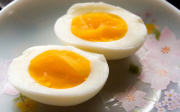
- Serving size- 1 large egg
- Calories- 77
- Calories from Fat- 48
- Total Fat- 5g, 8% DV
- Saturated Fat- 2g, 8%% DV
- Polyunsaturated Fat- 1g
- Monounsaturated Fat- 2g
- Cholesterol- 211mg, 70% DV
- Sodium- 139mg, 6% DV
- Potassium- 63mg
- Total Carbohydrate- 1g, 0% DV
- Dietary Fiber- 0g
- Sugars- 1g
- Protein- 6g
- Vitamin A- 0% DV
- Vitamin C- 0% DV
- Calcium- 2% DV
- Iron- 3% DV
Egg Nutrition Facts Nutrition Facts Fried
Fried egg nutrition facts reveal that they are a source Vitamins A, D, E, K and B6, Calcium, Iron, Folate, Pantothenic Acid, Magnesium, Potassium, Zinc, Copper and Manganese. They are also a good source of Vitamin B12, Protein, Phosphorus and Selenium.

- Serving size- 1 large (46g)
- Calories- 90
- Calories from Fat- 63
- Total Fat- 7G, 11% DV
- Saturated Fat- 2g, 8% DV
- Cholesterol- 210mg, 70% DV
- Sodium- 94mg, 4% DV
- Total Carbohydrate- 0g
- Dietary Fiber- 0g
- Sugars- 0g
- Protein- 6g, 13% DV
- Vitamin A- 7% DV
- Vitamin C- 0% DV
- Calcium- 3% DV
- Iron- 5% DV
- Vitamin D- 4% DV
- Vitamin E- 3% DV
- Vitamin K- 3% DV
- Thiamin- 2% DV
- Riboflavin- 14% DV
- Vitamin B6- 4% DV
- Folate- 6% DV
- Vitamin B12- 11% DV
- Pantothenic Acid- 7% DV
- Magnesium- 1% DV
- Phosphorus- 10% DV
- Potassium- 2% DV
- Zinc- 4% DV
- Copper- 3% DV
- Manganese- 1% DV
- Selenium- 22% DV
Egg Nutrition Facts Hard Boiled
The hard boiled egg, like the boiled egg and fried egg contains a substantial chunk of your recommended daily allowance of the nutrient. Nutrition facts of this hard boiled egg show that it is a good source of Protein, Riboflavin and Selenium. When you look through these nutrition facts you will also see that it is also a source of quite a number of minerals, nutrients and Vitamins.
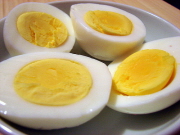
- Serving size- 1 large egg (50g)
- Calories- 77
- Calories from Fat- 48
- Total Fat- 5g, 8% DV
- Saturated Fat- 2g, 8% DV
- Cholesterol- 212mg, 71% DV
- Sodium- 62mg, 3% of DV
- Total Carbohydrate- 1g, 0% of DV
- Dietary Fiber- 0g
- Sugars- 1g
- Protein- 6g, 13% DV
- Vitamin A- 6% of DV
- Vitamin C- 0% of DV
- Calcium- 2% of DV
- Iron- 3% of DV
- Vitamin E- 3% of DV
- Vitamin K- 9% of DV
- Thiamin- 2% of DV
- Riboflavin- 15% of DV
- Niacin- 0% of DV
- Vitamin B6- 3% of DV
- Folate- 5% of DV
- Vitamin B12- 9% DV
- Pantothenic Acid- 7% of DV
- Magnesium- 1% of DV
- Phosphorus- 9% of DV
- Potassium- 2% of DV
- Zinc- 4% DV
- Copper- 9% of DV
- Manganese- 1% of DV
- Selenium- 22% DV
Egg Nutrition Facts Scrambled
Scrambled eggs, according to their nutrition facts are also a good source of Protein, Riboflavin, Phosphorus and Selenium. They also contain Vitamin A, D, E, B1 and B12, Calcium, Iron and a few more nutrients, minerals and vitamins.

- Serving size- 1 large egg (61g)
- Calories- 102
- Calories from Fat- 67
- Total Fat- 7g, 11% DV
- Saturated Fat- 2g, 10% DV
- Cholesterol- 215mg, 72% DV
- Sodium- 171mg, 7% of DV
- Total Carbohydrate- 1g, 0% of DV
- Dietary Fiber- 0g, 0% DV
- Sugars- 1g
- Protein- 7g, 14% DV
- Vitamin A- 6% DV
- Vitamin C- 0% DV
- Calcium- 4% DV
- Iron- 4% DV
- Vitamin D- 5% DV
- Vitamin E- 3% DV
- Thiamin- 2% DV
- Riboflavin- 16% DV
- Vitamin B5- 4% DV
- Folate- 3% DV
- Vitamin B12- 8% DV
- Pantothenic Acid- 6% DV
- Magnesium- 2% DV
- Phosphorus- 10% DV
- Potassium- 2% DV
- Zinc- 4% DV
- Manganese- 1% DV
- Selenium- 20% DV
Egg Nutrition Facts White
These are nutrition facts of raw and fresh egg white. Egg whites can be used for many things. For instance, they can be whipped and used in desserts such as meringues or mousse. From these nutrition facts on egg whites we can deduce that they are a source of Protein, Riboflavin, Pantothenic Acid, Magnesium, Potassium and Selenium.
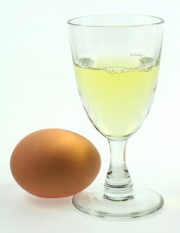
- Serving size- 1 large egg (33g)
- Calories- 16
- Calories from Fat- 1
- Total Fat- 0g
- Saturated Fat- 0g
- Cholesterol- 0mg
- Sodium- 55mg, 2% DV
- Total Carbohydrate- 0g, 0% of DV
- Dietary Fiber- 0g, 0% of DV
- Sugars- 0g
- Protein- 4g, 8% DV
- Vitamin A- 0% of DV
- Vitamin C- 0% of DV
- Calcium- 0% of DV
- Iron- 0% of DV
- Riboflavin- 9% DV
- Pantothenic Acid- 1% DV
- Magnesium- 1% DV
- Potassium- 2% DV
- Selenium- 9% DV
Egg Nutrition Facts: Salad
Egg salad nutrition facts may vary from recipe to recipe. This is a salad that may be eaten as a side dish, part of a meal or as a sandwich filling. The calories for this particular recipe are quite high and so is the total fat, saturated fat, cholesterol and sodium. These are things that we need to look out for when we are looking at the nutrition facts of any food that we want to eat. Too much of these may be harmful to our health. On the positive side however, egg salad is a good source of Iron, Vitamin A and a very good source of Protein.
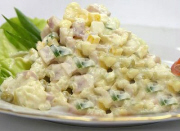
- Serving size- 1 cup
- Calories- 584
- Calories from Fat- 500
- Total Fat- 56g, 86% DV
- Saturated Fat- 11g, 55% DV
- Trans Fat- 0g
- Cholesterol- 581mg, 194% DV
- Sodium- 464mg, 19% of DV
- Total Carbohydrate- 3g, 1% of DV
- Dietary Fiber- 0g, 0% of DV
- Sugars- 3g
- Protein- 17g, 34% DV
- Vitamin A- 18% DV
- Vitamin C- 0% of DV
- Calcium- 7% of DV
- Iron- 11% of DV
Egg Nutrition Facts Poached
Poached egg nutrition facts show that they are low in calories and the total fat, sodium and saturated fat content are fair. Poached eggs are a good source of Protein, Riboflavin, Vitamin B12, Phosphorus and Selenium amongst other nutrients, vitamins and minerals that it is a source of.
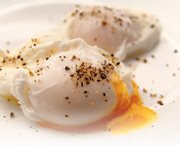
- Serving size- 1 large egg (50g)
- Calories- 71
- Calories from Fat- 45
- Total Fat- 5g, 8% DV
- Saturated Fat- 2g, 8% DV
- Cholesterol- 211mg, 70% DV
- Sodium- 147mg, 6% DV
- Total Carbohydrate- 0g
- Dietary Fiber- 0g
- Sugars- 0g
- Protein- 6g, 13% DV
- Vitamin A- 5% DV
- Vitamin C- 0% DV
- Calcium- 3% DV
- Iron- 5% DV
- Vitamin D- 4% DV
- Vitamin E- 2% DV
- Thiamin- 2% DV
- Riboflavin- 12% DV
- Vitamin B6- 3% DV
- Folate- 4% DV
- Vitamin B12- 11% DV
- Pantothenic Acid- 7% DV
- Magnesium- 2% DV
- Phosphorus- 10% DV
- Potassium- 2% DV
- Zinc- 4% DV
- Copper- 3% DV
- Manganese- 1% DV
- Selenium- 23% DV
Egg Nutrition Facts: Drop soup
Nutrition facts on drop egg soup reveal that it is basically a source of Calcium and Iron, only providing 2% and 4% of your recommended daily values. The sodium and cholesterol contents are on the high side, but the total fat, saturated fat and calories are fair.
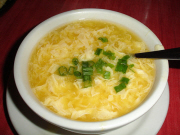
- Serving size- 1 cup
- Calories- 73
- Calories from Fat- 34
- Total Fat- 4g, 6% DV
- Saturated Fat- 1g, 4% DV
- Polyunsaturated Fat- 1g
- Monounsaturated Fat- 2g
- Cholesterol- 102mg, 34% DV
- Sodium- 730mg, 30% DV
- Potassium- 220mg
- Total Carbohydrate- 1g, 0% of DV
- Dietary Fiber- 0g
- Sugars- 1g
- Protein- 8g
- Vitamin A- 0% of DV
- Vitamin C- 0% of DV
- Calcium- 2% DV
- Iron- 4% DV
Egg Nutrition Facts: Noodles
Egg noodle nutrition facts reveal that they are a source of quite a number of nutrients including; Calcium, Iron, Vitamin E, Thiamin, Riboflavin, Niacin, Vitamin B6, Folate, Dietary Fiber, Vitamin B12, Pantothenic Acid, Magnesium, Phosphorus, Copper, Zinc, Manganese and Potassium. Egg noodles are an excellent source of Selenium, providing you with 43% of your recommended daily value.

- Serving size- 1 cup (38g)
- Calories- 146
- Calories from Fat- 14
- Total Fat- 2g, 3% DV
- Saturated Fat- 0g
- Cholesterol- 32mg, 11% DV
- Sodium- 8mg, 0% DV
- Total Carbohydrate- 27g, 9% of DV
- Dietary Fiber- 1g, 4% DV
- Sugars- 1% DV
- Protein- 5g, 11% DV
- Vitamin A- 0% DV
- Vitamin C- 0% DV
- Calcium- 1% DV
- Iron- 4% DV
- Vitamin E- 1% DV
- Thiamin- 4% DV
- Riboflavin- 2% DV
- Niacin- 4% DV
- Vitamin B6- 4% DV
- Folate- 3% DV
- Vitamin B12- 2% DV
- Pantothenic Acid- 3% DV
- Magnesium- 6% DV
- Phosphorus- 9% DV
- Potassium- 3% DV
- Zinc- 5% DV
- Copper- 6% DV
- Manganese- 16% DV
- Selenium- 43% DV
Egg Nutrition Facts: White Omelet
As we mentioned earlier, it's the egg yolk that contains most of the egg's nutrients. We can see it here from the egg white omelet that it is basically a source of Protein, providing only 3% of your daily value. The other good thing is that it is low in calories. So those who are watching their calories can have it, although it's not as nutritionally balanced as a whole egg omelet.

- Serving size- 1 serving
- Calories- 78
- Total Fat- 1g, 2% DV
- Saturated Fat- 0g
- Trans Fat- 0g
- Polyunsaturated Fat- 0g
- Monounsaturated Fat- 0g
- Cholesterol- 187mg, 63% DV
- Sodium- 0mg
- Total Carbohydrates- 6g, 2% DV
- Sugars- 0g
- Protein- 2g, 3% DV
- Vitamin A- 0% DV
- Vitamin C- 0% DV
- Calcium- 0% DV
- Iron- 0% DV
Egg Nutrition Facts: Yolk
The egg yolk, as we have mentioned earlier is the 'heart' of the egg. It basically contains most of the mineral, nutrients and vitamin that you may hope to gain from eating an egg and more. The egg white does contain some nutrients, but without the yolk, the egg will not be the nutritious food that we know it to be today. It is a source, good source and excellent source of quite a number of nutrients.
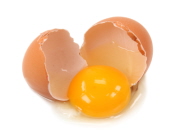
- Serving size- 1 large yolk (17g)
- Calories- 54
- Calories from Fat- 41
- Total Fat- 5g, 7% DV
- Saturated Fat- 2g, 8% DV
- Cholesterol- 210g, 70% DV
- Sodium- 8mg, 0% DV
- Total Carbohydrate- 1g, 0% DV
- Dietary Fiber- 0g
- Sugars- 0g
- Protein- 3g, 5% DV
- Vitamin A- 0% DV
- Vitamin C- 0% DV
- Calcium- 2% DV
- Iron- 3% DV
- Vitamin D- 5% DV
- Vitamin E- 2% DV
- Thiamin- 2% DV
- Riboflavin- 5% DV
- Vitamin B6- 3% DV
- Folate- 6% DV
- Vitamin B12- 6% DV
- Pantothenic Acid- 5% DV
- Phosphorus- 7% DV
- Potassium- 1% DV
- Zinc- 3% DV
- Copper- 1% DV
- Selenium- 14% DV
So there you go; even though egg nutrition facts have shown that they contain high levels of cholesterol, do not be alarmed. As we have already said, this cholesterol does not have harmful effects to our bodies as the common myth suggests. So go ahead and enjoy the delicious taste of eggs as well as the nutrition they come with.


